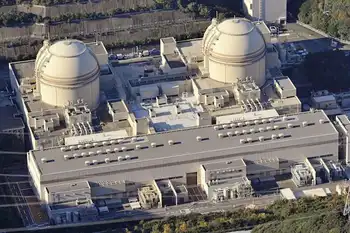Alabama needs tough watchdog for utilities
The Public Service Commission has the duty of regulating utilities, but the PSC's performance in recent years brings to mind a question raised more than 2,000 years ago by the Roman poet Juvenal: "But who is to guard the guards themselves?"
Using data from the federal government, the Press-Register has shown that residential natural gas rates in Alabama have been well above the national average for the past decade. Those rates have continued to climb, making Alabama the third most expensive state in the country. This is no small concern in a state with some of the nation's poorest citizens.
Unlike many states with lower prices, Alabama produces about as much natural gas as it consumes. An unanswered question is why natural gas customers aren't enjoying the benefits of their proximity to production facilities. In most unregulated industries, lower transportation costs mean lower prices.
An aggressive utilities watchdog would demand to know why Alabama's natural gas prices are among the nation's highest. The problem is, Alabama doesn't have a tough consumer advocate to keep an eye on the regulators.
In a number of states, the process of setting utility rates is adversarial, meaning that an independent agency has the duty of probing and challenging the utilities. North Carolina, for instance, has a large staff that audits utilities and routinely goes to court to contest PSC decisions on rates.
The state attorney general's office is supposed to represent Alabama ratepayers, but the attorney general has no authority to audit utilities. Not surprisingly, the three people the attorney general assigns to monitor the PSC function more as bystanders than watchdogs. The attorney general doesn't have the power or the resources to provide real accountability for the PSC.
Back in the mid-1980s - a time when natural gas prices in Alabama closely tracked the national average - the state had an oversight group within the PSC that monitored utility rates. But the staff was disbanded after a court ruling said the state couldn't operate it with PSC funds.
This narrow legal interpretation clearly wouldn't prohibit the Legislature from creating a new PSC oversight arm with a different funding source.
Lawmakers should consider expanding the attorney general's oversight of the PSC. As a high-profile elected official, the attorney general could be an effective advocate for the public. If he failed to hold the utilities' feet to the fire, voters would be more likely to hold him accountable than the somewhat obscure members of the PSC.
A spokesman for Attorney General Troy King told the Press-Register the AG's office "would be glad to audit the company books" if it had the manpower and the necessary authority. Mr. King should publicly ask for those things. It also would help if Gov. Bob Riley felt the consumers' pain and responded by calling for legislation unleashing a real PSC watchdog.
A look at this winter's heating bills should be enough to convince the Legislature that the state needs utility overseers whose only mission is to guard the people's pocketbooks.
Related News

Enel kicks off 90MW Spanish wind build
MADRID - Enel Green Power Espana has started constructing three wind farms in Aragon, north-east Spain, which are due online by the end of the year.
The projects, all situated in the Teruel province, are worth a total investment of €88 million.
The biggest of the facilities, Sierra Costera I, will have a 50MW and will feature 14 turbines.
The wind farm is spread across the municipalities of Mezquita de Jarque, Fuentes Calientes, Canada Vellida and Rillo.
The Allueva wind facility will feature seven turbines and will exceed 25MW.
Sierra Pelarda, in Fonfria, will have four turbines and a capacity of 15MW.
The projects bring the…





